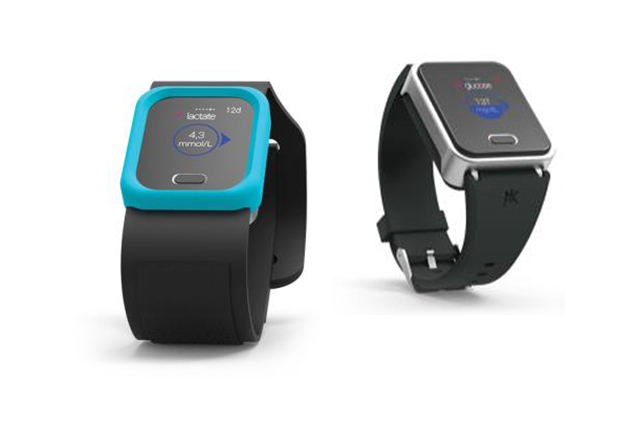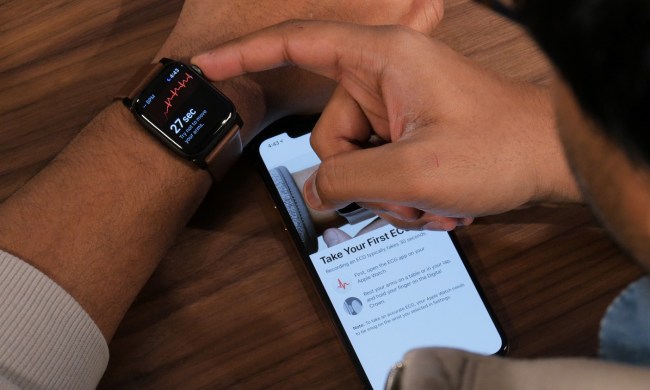
Chances are you haven’t heard of PKvitality, a self-described “biowearable” affiliate of consumer electronics firm PKparis. But the firm’s been plugging away for more than 20 years in the biological research business, developing innovative medical technologies for the consumer market. It’s newest invention, the patented SkinTaste biosensor, is perhaps its wildest yet: An array of tiny needles that collect and analyze skin fluid.
It works like this: Tiny 0.5mm-long SkinTaste microneedles puncture the surface of the skin and probe interstitial fluid, the pasty clear substance that surrounds tissue cells, which absorbs chemicals like glucose directly from the blood. Once the probes penetrate the top-most epidermal layer, miniature pumps extract the fluid for chemical analysis.
PKvitality describes interstitial fluid, which makes up as much as 16 percent of an average person’s body weight and provides cells with nutrients, as a wealth of telling biomarkers. The company contends that the fluid’s location near the top-most portion of the skin — roughly 1mm above pain nerves and blood vessels — makes it ideal for comfortable extraction.
The company is wasting no time adapting it for consumer electronics. It debuted two wearables, the K-Track Glucose and K-Track Athlete, at this week’s Consumer Electronics Show in Las Vegas.

“K’Track Glucose is the first accurate non-blood-based glucose monitor to be built directly into a wearable device,” said PKvitality in a press release. “It combines the elegance and utility of traditional activity trackers with the life-changing information of a medical device.”
The K’Track Glucose isn’t maintenance-free, though. It uses removable capsules — K’apsules — that last a maximum of 30 days. And it’s pricey — the K’Track Glucose starts at $150, and each replacement K’apsul costs $100. But compared to conventional monitors, which represent an initial investment of anywhere between $1,000 and $,1400, as well as $500 a year in maintenance costs, it’s almost a no-brainer.
K’Track Athlete is the second wearable to tap PKvitality’s proprietary SkinTaste technology. But unlike the K’Track Glucose, it’s got a fitness bent: Instead of measuring blood sugar, it measures lactic acid.
“Lactic acid is a key performance indicator for the body and a guide to how well muscles react to long-term exertion and recovery,” PKvitality says. Mostly, it’s about avoiding the Lactic Threshold, or the point at which lactate begins to accumulate in the blood at a faster rate than it can be removed. That buildup triggers fatigue, which in turn affects the body’s ability to perform optimally at activities like long-distance running, rowing, swimming, and cycling.
“By understanding optimal levels of lactic acid, … endurance athletes and their trainers can optimize training schedules, recovery patents, and ultimately performance,” PKvitality said.
Current lactate tests require blood draws that can’t be performed during physical activities, resulting in readings that at best only approximate levels. The K’Track Athlete, in contrast, conducts measurements with the push of a button or continuously. They’re displayed in real time on the smartwatch’s display, and sync with a dedicated smartphone app for Android and iOS.
The $200 K’Track Athlete, like the K’Track Glucose, requires a removable capsule in order to function — a $150 Athlete K’Apsule. It, too, lasts about a month.


